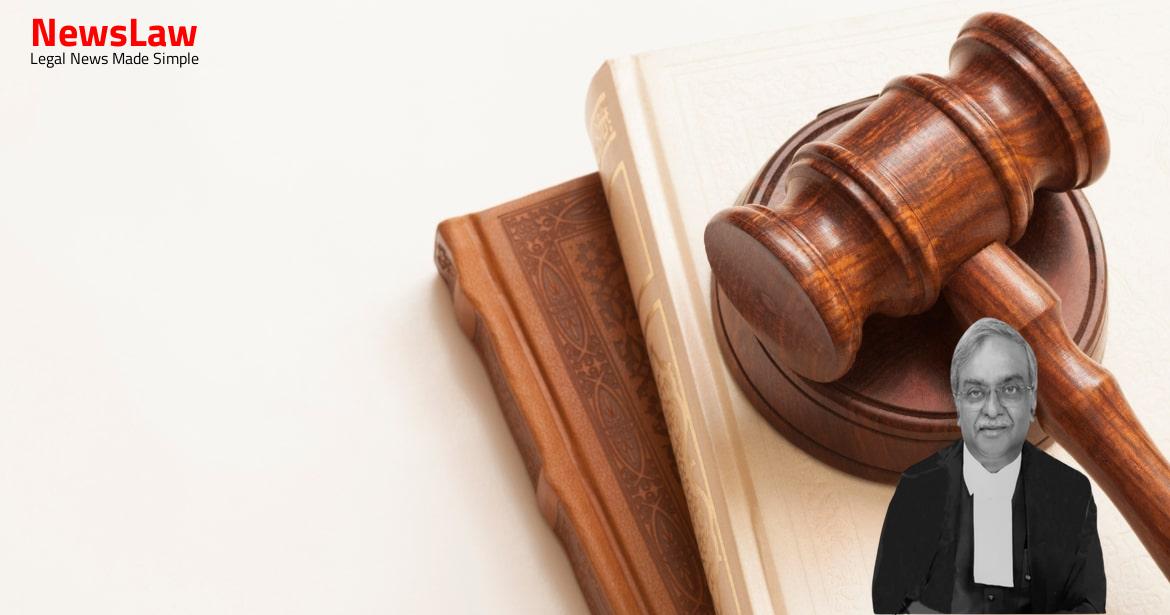In a recent legal case involving the Appellants and the Complainant, the High Court granted liberty to the Complainant to prefer an application under Section 319 read with Section 216 of the CrPC. The case revolves around the events of Case Crime No. 7243 of 2018, where the Appellants were sought to be impleaded as Accused No. 2 in the proceedings. Let’s delve into the details of this case and the implications of the High Court’s decision.
Facts
- The High Court granted the Complainant liberty to prefer an application under Section(s) 319 read with 216 of the CrPC before the Trial Court seeking impleadment of the Appellants in the proceedings from the FIR.
- The Complainant, eyewitnesses, and the doctor named and ascribed a role to Appellant No. 3 in their statements under Section 161 CrPC before the investigating authorities.
- The Trial Court partly allowed the Complainant’s application, impleading Appellant No. 1 as an accused person as he failed to prevent the offense, but rejected impleading Appellant No. 2 due to lack of identification reason.
- An application under Section 482 CrPC was filed seeking re-investigation, where the Complainant for the first time named Appellant No. 1 and Appellant No. 2 as accused, attributing a specific role to them in the incident.
- The High Court observed that the investigation had concluded and a chargesheet was filed, refusing to order re-investigation.
- The Appellants were sought to be impleaded as Accused No. 2 in the Underlying Proceedings by the High Court order.
- The appeal challenges the High Court’s decision setting aside the Trial Court’s order rejecting the application to summon and implead the Appellants in connection with the Case Crime No. 7243 of 2018.
- The FIR alleged that Appellant No. 3 assaulted the Complainant’s son and made threats, with no roles mentioned for the other accompanying individuals.
- Revision petitions were filed by Appellant No. 1 and Respondent No. 2 against the High Court’s order.
- The Trial Court dismissed the Underlying Application as there was no evidence implicating the Appellants based on specific allegations made by the Complainant.
- The Complainant filed a criminal revision petition before the High Court against the Underlying Order.
- The High Court, in the Impugned Order, found that the Appellants were present at the time of the alleged offence and trespassed into the Complainant’s home.
- The High Court emphasized that at the stage of invoking Section 319 of CrPC, there needs to be a prima facie satisfaction that the accused has committed the alleged offence.
- An application under Section(s) 319 read with 216 of the CrPC was filed by the Complainant before the Trial Court, highlighting the omission of the Appellants’ names in the FIR and statements recorded under Section 161 of CrPC.
- The High Court allowed the criminal revision petition, set aside the Underlying Order, and directed the Trial Court to reconsider the matter.
- The High Court remanded the Underlying Application back to the Trial Court for fresh consideration in accordance with previous decisions.
Also Read: Surendra Maternity and Trauma Hospital vs. Respondent No. 2 Legal Case
Arguments
- Mr. S. Nagamuthu, senior counsel for the Appellants, argued that the High Court wrongly reversed the Trial Court Order under Section 319 of the CrPC due to vague and omnibus allegations against the Appellants.
- The Appellants contend that there is no concrete evidence linking them to the alleged offense, citing the judgment in Hardeep Singh case.
- Counsel for the Respondents countered by stating that the High Court correctly analyzed the complaint, statements under Section 161 CrPC, and witness testimonies to establish the involvement of the Appellants.
- The Respondents argue that the High Court’s decision aligns with the principles laid down in Jitendra Nath Mishra v. State of Uttar Pradesh (2023) 7 SCC 344.
- After hearing both parties and reviewing the evidence, the Court emphasized the discretionary nature of Section 319 CrPC, highlighting the need for strong and cogent evidence before invoking the provision.
Also Read: Justice Denied: Victim Excluded from Settlement Agreement Case
Analysis
- The discretionary powers under Section 319 of the CrPC should be used sparingly.
- The High Court overturned the Trial Court Order and impleaded the Appellants as accused persons based on a prima facie finding.
- The High Court’s decision was not in line with the caution given by the Constitution Bench and the opinion in Hardeep Singh case.
- Trial Court Order was well reasoned and not perverse
- Materials on record did not satisfy the threshold as per Hardeep Singh case
- Evidence presented did not meet the standard for framing of charges
Also Read: Analysis of Jurisdiction under Section 319 of the CrPC
Decision
- The pending application(s), if any, have been disposed of.
- The appeal has been allowed.
- The Impugned Order has been set aside.
Case Title: N. MANOGAR Vs. THE INSPECTOR OF POLICE (2024 INSC 130)
Case Number: Crl.A. No.-001333-001333 / 2024



